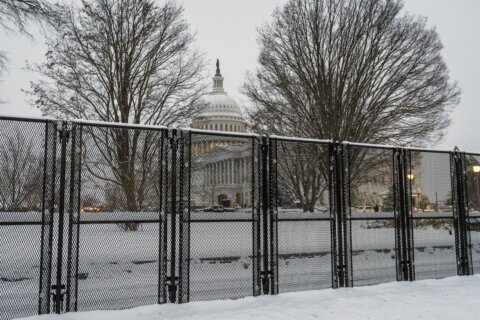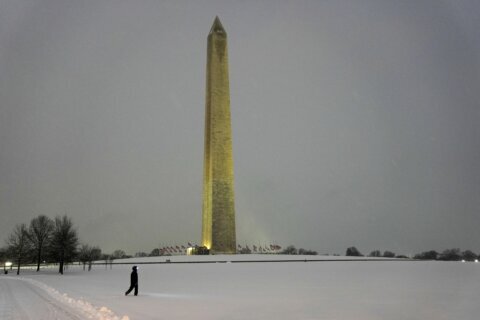WASHINGTON (AP) — The U.S. Constitution spells it out clearly in Article II, Section 3: The president “shall from time to time give to the Congress information of the state of the union, and recommend to their consideration such measures as he shall judge necessary and expedient.”
But the modern State of the Union address — the pageantry, the televised address and the agenda-setting message — is a far more recent tradition.
A look at some State of the Union history as President Joe Biden prepares to give his address to Congress:
Who delivered the first State of the Union address?
George Washington on Jan. 8, 1790, in New York.
Does it have to be a speech?
No. For his first address on Dec. 8, 1801, Thomas Jefferson sent written copies to both houses of Congress to be read by each chamber’s clerks. Jefferson wanted to simplify what he believed was an aristocratic imitation of the British monarch’s speech from the throne, which he thought ill-suited for a republic. The practice of sending written copies to Congress continued for more than a century.
Woodrow Wilson later resumed the tradition of delivering the annual message in person on April 8, 1913. He’s also credited with transforming the speech from a report on executive branch activity into a blueprint for the president’s legislative agenda for the year.
When did it become known as the “State of the Union” address?
Franklin D. Roosevelt applied the constitutional phrase “State of the Union” to both the message and the event. It became the popular terminology from then on.
How has the speech been affected by technology?
Calvin Coolidge delivered the first speech broadcast on radio in 1923. Harry Truman’s address in 1947 was the first broadcast on television. Lyndon B. Johnson recognized the importance of having a national audience when he moved the speech from midafternoon to 9 p.m. in 1965 to attract the largest number of TV viewers. George W. Bush’s 2002 speech was the first available as a live webcast on the White House website.
Is there a State of the Union speech every year?
No. Recent presidents — Reagan in 1981, George H.W. Bush in 1989, Bill Clinton in 1993, George W. Bush in 2001, Barack Obama in 2009, Trump in 2017 and Biden in 2021 — did not give an official State of the Union address their first year in office. That speech would have come soon after their inaugural addresses. However, many of them still gave a major speech to Congress soon after their inauguration.
Has it always been delivered in person since Wilson resumed it?
No. Truman sent his final message in print, as did Eisenhower in 1961 and Carter in 1981. As Eisenhower recovered from a heart attack in 1956, he prepared a seven-minute, filmed summary of the message from his retreat in Key West, Florida, that was broadcast nationwide. Richard Nixon sent a printed message in 1973; his staff said an oral message would have come too soon after his second inaugural address.
Which presidents didn’t deliver a State of the Union message?
William Henry Harrison, who died 32 days after his inauguration in 1841, and James A. Garfield, who was assassinated in 1881 after 199 days in office.
___
Sources: Congressional Research Service, White House.
Copyright © 2025 The Associated Press. All rights reserved. This material may not be published, broadcast, written or redistributed.







